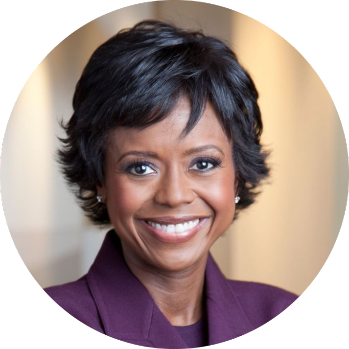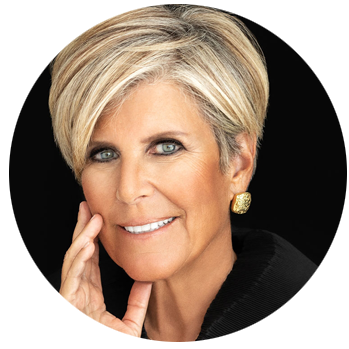Best Financial Advisors for Nurses

Are you a nurse looking to take charge of your financial future? Whether you're just starting your career or have been in the nursing profession for years, having a solid financial plan is essential for achieving your goals and maintaining your overall financial health.
To help you navigate the complexities of personal finance and make informed decisions, we've researched and compiled a list of the best financial advisors specifically tailored to nurses. In this blog post, we'll explore the top financial advisors who understand the unique challenges and opportunities nurses face and can guide you towards a prosperous and secure financial future.
Key Takeaways
- Nurses can be financially SMART by setting specific, measurable, achievable, relevant, and time-bound goals.
- Practical financial planning goals for nurses include avoiding financial pitfalls, paying off student loan debt, tracking expenses and creating a budget, and prioritizing retirement savings.
- The top 5 financial advisors for nurses include William Huston, Ekenna Anya Gafu, Ila Corcoran, Mellody Hobson, and Suze Orman.
Disclaimer
The contents of this article are for educational purposes only. They are not intended to be a source of professional financial advice. You will find experts on financial planning and financial management here. More on disclaimers here.
Personal finance for nurses
Personal finance plays a crucial role in the lives of nurses, as it empowers them to make informed choices that support their financial well-being. Nurses, like any other professionals, have unique financial needs and considerations. From managing student loan debt, navigating fluctuating work schedules, to planning for retirement, understanding personal finance is essential for nurses to achieve their financial goals.
Do nurses struggle financially?
While nursing brings forth numerous personal and professional rewards, it can also present obstacles to achieving financial wellness. Many nurses embark on their careers burdened by significant financial debt, primarily in the form of student loans. Experts caution that when combined with high-interest debt like credit cards, these loans can easily snowball into a larger financial burden if not managed effectively.
Despite nursing salaries often exceeding the national average for all occupations, nurses are responsible for covering essential work-related expenses, such as shoes, scrubs, and stethoscopes, without reimbursement.
Moreover, some nurses, who work on an as-needed basis, often miss out on retirement plans, health insurance, and other financial benefits offered to full-time salaried employees. The demanding nature of nursing, marked by stressful working conditions, irregular hours, and physical and emotional strain, leaves nurses with limited time and energy to dedicate to financial planning.
The challenges nurses face extend beyond patient care, encompassing the delicate task of balancing a nursing career with effective financial management. However, by understanding these unique circumstances and implementing smart financial strategies, nurses can overcome these hurdles and pave the way towards financial stability and well-being.
Can you be financially stable as a nurse?

Absolutely! If you are determined to and work with the right professional, it is indeed possible to achieve financial stability as a nurse. With a steady income, opportunities for career advancement, and access to various benefits, nursing can provide a solid foundation for financial well-being. However, attaining financial stability requires discipline, careful planning, and making smart financial choices.
By budgeting effectively, saving consistently, managing debt wisely, and investing for the future, nurses can not only achieve financial stability but also create a path towards financial freedom. Being financially smart is key to harnessing the full potential of your nursing career and ensuring long-term financial security.
Moreover, being financially smart, staying informed about personal finance strategies, and seeking professional guidance when needed, nurses can navigate the complexities of the financial world and build a strong financial future.
Attaining financial security and freedom is well within reach for nurses through the implementation of key practices. By crafting a budget, nurses can effectively allocate their income, ensuring that essential expenses are covered while leaving room for savings and investments. Prioritizing emergency and retirement savings establishes a safety net for unexpected circumstances and secures a comfortable future.
Making wise investment decisions helps grow wealth over time, while managing debt responsibly prevents it from becoming a burden. It is crucial to recognize that personal finance is a journey requiring patience, discipline, and ongoing commitment. By staying dedicated to these principles, nurses can pave the way towards a prosperous and financially independent future.
How can a nurse be financially SMART?
Nurses are very educated professionals but not many of them have a grasp on financial literacy or how to manage their personal finances. Even for some who are financially savvy, they are still a far cry from being financially SMART.
Financial smartness is less about ample knowledge and good financial intuition, and more about practicability and achieveability. In the world of finance, SMART is an acronym for specific, measurable, achievable, relevant and time-bound.
This means that your financial planning must be designed around goals that have these qualities.
Practical financial planning for nurses

As pointed out earlier, financial planning only works when you have clear-cut financial goals, and as a nurse, the following make up a starting set of goals to underwrite your financial life:
1. Avoid Money Potholes
Recognize and steer clear of common financial pitfalls. Nurses, like anyone else, may face temptations such as unnecessary impulse purchases or excessive credit card debt. Practice disciplined spending, differentiate between wants and needs, and focus on long-term financial goals.
2. Pay Student Loan Debt
Many nurses start their careers with student loan debt. Make paying off this debt a priority by exploring repayment options that suit your financial situation. Consider refinancing or consolidating loans for potential interest rate reduction, and allocate a portion of your income specifically towards eliminating this debt.
3. Track Expenses and Make a Budget
Keep a close eye on your spending habits by tracking your expenses. This allows you to identify areas where you can cut back or make adjustments. With a clear picture of your income and expenses, create a budget that aligns with your financial goals. Be realistic, allocate funds for savings, emergencies, and necessary expenses, and stick to your budget as much as possible.
4.Plan for Retirement Savings
Plan for your future by prioritizing retirement savings. Take advantage of employer-sponsored retirement plans and contribute the maximum amount allowed, especially if your employer offers matching contributions. Additionally, explore individual retirement account (IRA) options to further grow your retirement savings. It is essential to develop and maintain a retirement savings strategy. Moreover, starting early and consistently contributing to retirement accounts can significantly benefit you in the long run.
What is the best retirement plan for nurses?
Nursing jobs often offer complementary retirement plans in the form of 401(k) or 403(b) accounts. These plans are designed to help nurses save for their retirement by automatically deducting contributions from their gross salaries on a monthly basis.
It's important to note that early retirement or withdrawing funds from these accounts before reaching the designated retirement age may result in penalties. Therefore, it is advisable to carefully consider the long-term implications before making any premature decisions regarding your 401(k) or 403(b) funds.
Working with a financial professional gives you a better chance of developing favorable retirement savings plans or a financial plan in general.
Who are the top 5 financial advisors?
Spotting a good financial advisor can be a hard task to take on, but we've curated a list of leading advisors that are perfect for you as a nurse.
1. William Huston, AIF®, AIFA®

William (AIF®, AIFA®), is the Founder and CIO of Bay Street Capital Holdings, an esteemed investment and wealth management firm. With a wealth of experience, William has established himself as an exceptional financial advisor, catering to high-earning individuals, including nurses at any stage of their career.
Recognized for his expertise, William was honored by Investopedia.com as one of the top 100 financial advisors in both 2021 and 2022. Furthermore, his company, Bay Street Capital Holdings, achieved an impressive ranking of 2nd out of 900 asset management firms by Wealthmanagement.com.
Leveraging his extensive experience spanning over a decade in the financial services industry, William serves as a trusted guide for nursing professionals, providing invaluable insights in investment management and risk management.
2. Ekenna Anya Gafu, CFP®, AAMS®

Ekenna, a Certified Financial Planner (CFP) and Accredited Asset Management Specialist (AAMS), offers comprehensive financial planning services that transform aspirations into tangible outcomes, and has a track record of assisting a diverse range of clients.
Ekenna excels in helping his clients build substantial emergency funds and develop robust retirement plans. With over five years of experience in the brokerage industry, Ekenna stands out as an exceptional financial advisor, uniquely equipped to provide specialized guidance to nurses.
3. Ila Corcoran

Ila entered the finance and wealth management industry with great determination, establishing herself as an esteemed expert in her field. Starting her career as a property manager, she has developed a keen understanding of fostering lifestyle stability and financial success for medical professionals through housing and property ownership. Leveraging her expertise as a realtor, Ila offers valuable real estate education and opportunities to nurses and other medical professionals.
4. Mellody Hobson

Mellody Hobson holds impressive roles as the co-CEO and President of Ariel Investments, a mutual fund company and investment management firm based in Chicago. She also serves as the chairperson of the Board of Starbucks Corporation and is a Director of JPMorgan Chase.
With a strong belief in and advocacy for financial literacy among Black Americans, she actively supports professionals, including nurses, in maximizing their earnings. In 2022, Barron's recognized Mellody Hobson among the 100 Most Influential Women in U.S. Finance.
5. Suze Orman

Suze Orman is a highly renowned financial advisor and personal finance expert, widely recognized in the United States. She has achieved the status of being a #1 New York Times bestselling author, with a focus on personal finance.
Suze has authored several books, including Women & Money, The 9 Steps to Financial Freedom, and The Money Book for the Young, Fabulous and Broke, among others. Her books have reached a remarkable circulation of over 25 million copies and have been translated into 12 languages, reaching readers worldwide.
For 13 years, Suze Orman hosted The Suze Orman Show on CNBC, where she provided valuable financial guidance to her audience. She continues to empower and educate listeners through her podcast, Women & Money, inspiring them to take control of their financial destiny and lead more fulfilling lives through effective financial management.
Enjoy a Secure Financial Future
Securing a strong financial future as a nurse requires careful planning, discipline, and informed decision-making. By following key practices and seeking guidance from reputable financial advisors, you can pave the way towards financial stability and independence.
Bay Street Capital Holdings

Situated in Palo Alto, Bay Street Capital Holdings is a prominent wealth management firm specializing in financial planning, wealth management, and investment advisory services. What sets them apart is their unique approach that places emphasis on effectively managing overall risk and volatility, rather than solely pursuing maximum returns.
Under the guidance of the esteemed founder, William Huston, who was honored as one of Investopedia's Top 100 Financial Advisors for 2021, Bay Street stands out as one of the two Black-owned firms among the nineteen recognized in California. For its work in the real estate industry with Resthaven Properties, the firm has been named a finalist in the WealthManagement.com 2023 Industry Awards under the category of Asset Managers: Diversity, Equity and Inclusion.
The company's commitment to fostering diversity and supporting emerging fund managers and entrepreneurs is evident, as demonstrated by their selection as a finalist in the Corporate Social Responsibility (CSR) category for the Asset Manager in 2021. This recognition came after competing against more than 900 firms nationwide, highlighting their dedication to social impact.
Sources
https://nursejournal.org/resources/financial-wellness-for-nurses/
https://www.incrediblehealth.com/blog/nurses-considering-retirement/#:~:text=401(k)%20and%20403(,money%20before%20your%20retirement%20age.





















